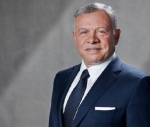You are here
A call for transforming the future of higher education innovatively and programmatically in the MENA region
Jul 14,2024 - Last updated at Jul 14,2024
This topic and other themes drove the academic discussion of agroup of scholars from Jordan, Morocco, Qatar, Spain, and the US, along with researchers from India and Iraq, who were able to submit their scholarly work for the "15th International Conference on Education: Innovative Technologies Transforming the Future of Higher Education", held on June 24-25, 2024 and hosted by Bridgewater State University (BSU) in Massachusetts, the US. The annual conference was attended by Dr. Bassam Almahasneh, President of Tafila Technical University (TTU), Jordan, Dr. Abderhani Elachqar, Vice President of Sidi Mohamad Ben Abdellah University (SMBAU), Fez, Morocco, Dr. Abdullah Al-Ali, Vice President for Academic Affairs of the Community College of Qatar. Among the attendees were Dr. Arnaa Alcon, Dean of the College of Humanities and Social Sciences and the Incoming Provost and Vice President of Academic Affairs at BSU. Interim Provost Alcon commended the conference’s main and subthemes and encouraged participants to think critically and thoughtfully about the applications of innovative technology in teaching and learning, focusing on keeping students at the center ofthe academic mission.
The wide range of technology available has posed challenges and opportunities for educational and cultural institutions. It becomes thought-provoking when educational institutions invest in the latest technologies without thoroughly evaluating the financial costs and potential benefits of the educational process.It is a powerful ally for higher education progress, in conducting scientific research, striving for innovation, curriculum development, and student success when it is subject to analytical study and evaluation in which opportunities and challenges are identified. The best example for illustrating the aspect of alliances and support is the potential use of artificial intelligence (AI). AI is here to stay. The conference callsfor balancing the utilization of this technology while ensuring ahigh degree of quality. This could be accomplished by the actual involvement of users, professors, and students. In other words, users are able toverify the data, information, and analysis provided by the AI. In his remarks, President Almahasneh elaborated on the role of modern technology in creating a qualitative change in the content and the outcomes of higher education at its various levels to befit student learning and prepare them for the marketplace. Along this line, Dr. Khalil Al Qatawneh, the representative of the Faculty of Education Sciences of TTU said the conference this year “surpassed expectations and achieved a level of excellence that we aim to uphold in the years ahead”. BSU President Fred Clark emphasized in his keynote remarks the university’s commitment to fostering strong partnerships, and international collaborations that reflect its vision and values and those of its global partners. It is worth noting that the conference’s two days discussed 36 scholarly papers, organized four workshops, and recommended the next annual meeting be hosted jointly by Hassan II University and SMBAU in Morocco.
The various technologies and AI-powered tools that are being used in education todayhave the added potential to advance the way we learn and teach. They provide personalized learning experiences, automate tasks, and make learning more engaging and effective.
Dr. Jabbar A.Al-Obaidi, Professor of Communication and Academic Director of Student Recruitment and Global Partnerships, Bridgewater State University, USA.
Dr. Madhusudana N. Rao, Professor of Geography, Director of the Middle East and North Africa Studies, Bridgewater State University, USA.













Add new comment